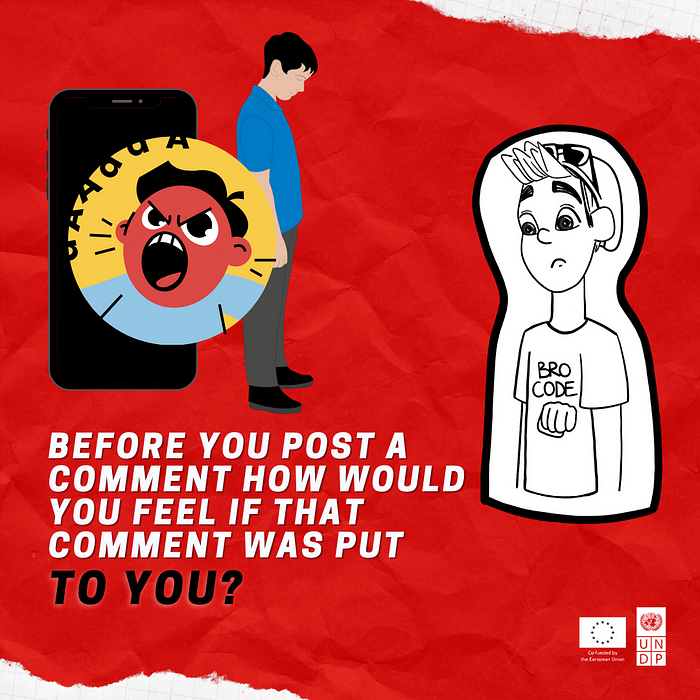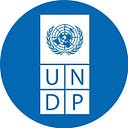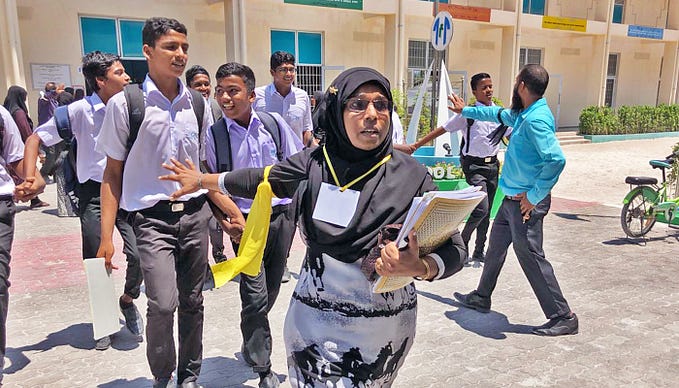“Not cool, bro!” Meet the youth activists tackling digital misogyny in Sri Lanka and the Maldives

Catcalling. Revenge porn. Toxic masculinity. Despite increasing awareness of how important feminism is to global development and human rights, hate speech and discrimination against women and girls continues to spread, particularly amongst young men and boys.
In Sri Lanka, researchers recently found that a culture of casual sexism, misogyny, and objectification prevails on platforms such as Facebook. Here, a team of youth decided to do something about it.
Through creating an anonymous persona, ‘The Cool Bro’, the team are intervening in online forums and social media pages that attract majority male audiences. Through provoking conversations using their hashtag #NotCoolBro, and showing why certain comments and attitudes are not ‘just a joke’, the team hopes disrupt patterns of gendered hate speech.
“Organizations out there are doing really great stuff for gender equality when it comes to women’s empowerment,” says Saahithiyanan Ganeshanathan, “but our team wanted to think how we could break out of digital echo-chambers. We want to reach guys who engage with this kind of harmful banter without giving it a second thought.”

Saahithiyanan is one of 28 youth identified by UNDP, the EU, and social change agency LoveFrankie as the next generation of youth influencers in Sri Lanka and the Maldives. Chosen based on their creativity, prior work in advocacy, or experience in community leadership, they undertook four months of intensive training to become more effective online communicators against discrimination, hate speech, and misinformation. The programme: United Creatives.
“I think harmful values can have a lot to do with power structures,” says fellow teammate, Ruqaiyah Mohamed Shiraz.

“Growing up I felt I had to always prove that I was worthy even though I am a girl. I was not taken seriously and often saw how girls were the butt of men’s jokes. Our campaign hopes to show that doing this is actually… really not cool. Although gender stereotypes are deeply ingrained, they can be unlearned.”
Their campaign has never been timelier. There are concerns about how commonplace misinformation or sensationalist content can be, the relative ease at which extreme or intolerant ideas spread online, and how these issues might be affecting the increasingly digital-first youth generation. In the Maldives too, reports have exposed misogynistic sentiments and victim-blaming attitudes towards women.
Fathmath Zainy Shaafiu, Aminath Izana Shameem, and their team took a slightly different approach. The #AnhenehVeema (or “Because She’s A Woman”) campaign includes comics that address gendered double standards. In an online culture where offensive jokes and hate speech against women are often not taken seriously, their content tries to sensitize audiences to women’s digital experiences.

For both teams, sparking conversations about these topics is key. #NotCoolBro uses a mix of infographics, ‘seeding’ or distributing targeted comments on meme pages, and videos on TikTok that encourage audiences to ‘stitch’ or respond to conversation starters. Their videos ask what audiences would do in hypothetical situations, like how they would respond if a friend sent them a nude photo of a woman without the woman’s consent. Users responding to these prompts provides an entry point for the #NotCoolBro team to then engage in debate anonymously.
Meanwhile, in the Maldives, the team created a forum, called “Ask Dhontha/Dhonbe” (“Ask A Sister/Brother”) which allows users to anonymously receive advice on issues related to gendered hate speech. They are also crowd-sourcing content from their followers based on a weekly theme to encourage others to contribute conversations.
“Feminism is sometimes conflated with cancel culture, creating an environment where men feel they can’t say anything without fear of rebuttal,” says Saahithiyanan, “But promoting conversation and critical thinking is an important way to build a pathway towards understanding and change.”

Developing youth leaders to become credible messengers is a key tactic to when it comes to tackling digital hate. Participants in the United Creatives programme gained expert insights from organizations such as The Centre for Communications Training, The Institute of Economics and Peace, Moonshot, Hashtag Generation, Facebook, TikTok, the Centre for Investigative Reporting, and digital celebrities such as one of India’s most popular YouTube creators Prajakta Koli a.k.a. MostlySane, film maker Nadir Nahdi, social media activist Kapila Rasnayaka, among others.
The initiative has already seen solid results. 89% of participants felt confident they had gained the technical skills to design and create a social impact campaign, while 96% of participants said they were likely to continue to create content that promotes inclusion, diversity and tolerance beyond the completion of the programme.
With their digital campaigns continuing to run over the next few months, all eyes are on what these young change-markers achieve next.
United Creatives is a virtual programme by UNDP and the European Union, getting young leaders, influencers and creators in Sri Lanka and the Maldives to build creative digital campaigns that help end hate speech, amplify positive messages, and create real social change. Explore the full range of campaigns developed by participants here!
Contact: isabella.caravaggio@undp.org / mailee.ostentan@undp.org







